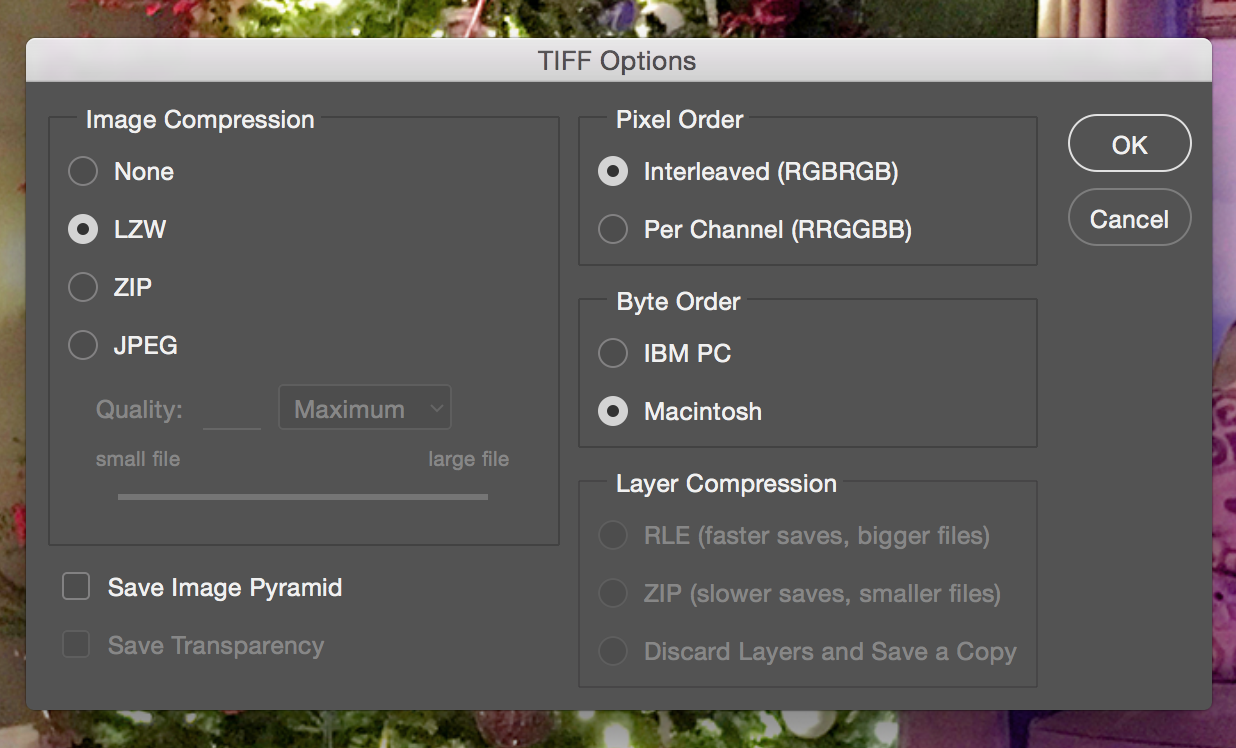If you have uncompressed TIFFs and work on a Mac, you can batch compress them in Terminal with tiffcp -c lzw "INPUT_FILE" "OUTPUT_FILE"
I just did this, to compress a big folder of tiffs, with additional commands to preserve the original modification time on the files:
for f in *.tif *.tiff; do out="$f.lzw.tiff"; if tiffcp -c lzw "$f" "$out"; then touch -r "$f" "$out" && mv "$out" "$f"; else echo "ERROR with $f"; fi; done
Or a more readable multi-line version:
for f in *.tif *.tiff; do \
out="$f.lzw.tiff"; \
if tiffcp -c lzw "$f" "$out"; then \
touch -r "$f" "$out" && mv "$out" "$f"; \
else \
echo "ERROR with $f"; \
fi; \
done
(tiffcp comes with the libtiff homebrew package. So you need to have homebrew installed, but if you are lazy enough you probably already have it)

